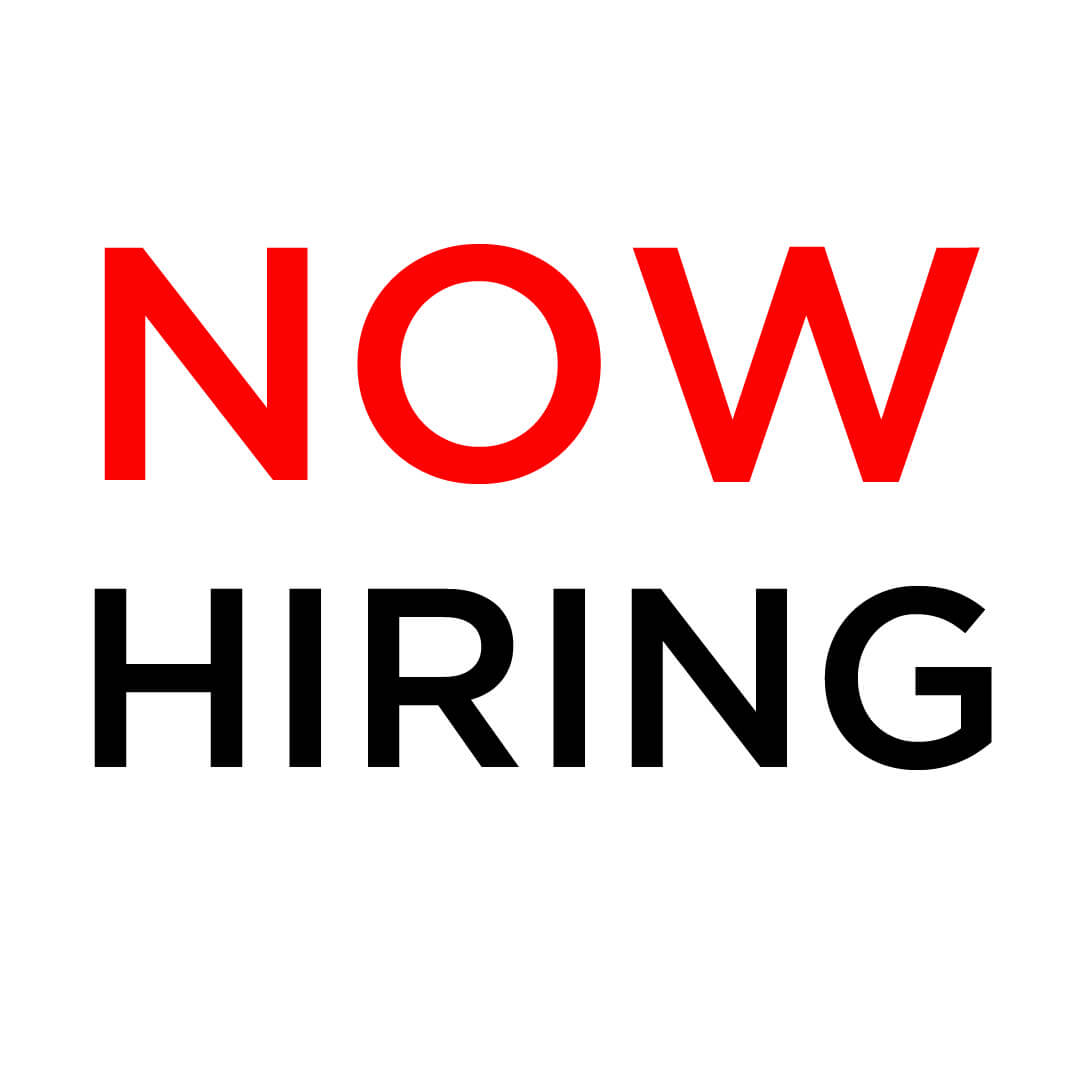Hire Correctly – Not Quickly
Your staff is one of the most important aspects of your business. Without them, your growing business could quickly shrivel. So, an open position to you could feel more like a black hole.
If you already have a small staff, an open position may mean more work for you and less time managing the business. Or, if your business is larger, an open position can negatively impact your productivity and as a result, your bottom-line. Whatever your situation, your business, and you, cannot afford to have an open position.
Since vacancies can be painful, many business owners fill a position quickly to ease their pain. But, while quick hiring decisions solve the problem of an unwanted vacancy, they create another, and potentially more troubling problem – dealing with an employee who can’t do the job, or who isn’t a good cultural fit.
At Anchor Advisors, we have seen this scenario too many times. While examining the issue of hiring, we discovered three characteristics of business owners that make them prone to making poor hiring decisions.
1. Business owners like to make quick decisions.
Business owners are doers. They did not get to where they are by sitting back and letting the world happen to them – they happen to the world. So, when they have an open position, they are inclined to fill it…immediately.
This sense of “doing” leads to quick, and often poor, hiring decisions. Many business owners prefer to use their “gut” instinct when hiring – and decisions made from the gut tend to be quick. Unfortunately, they also lead to mistakes. Hiring takes time and a commitment from the business owner. If business owners don’t take the time to make a good, informed hiring decision, it will be more costly and time-consuming when they have to recover from a bad hire.
Making a commitment to an employee isn’t as serious as getting married, but some of us end up spending more time with our employees than we do our spouses. So think about how you’d feel if your son or
daughter wanted to marry someone he/she had met just once or twice, but they “have a good gut feeling about them”. You get my point.
2. Business owners like to solve problems.
Business owners don’t like problems. Problems cost them time, efficiency and oftentimes, results. As a result, we want to quickly resolve any problems we encounter and continue to move forward. And, having an open position is a problem, so business owners naturally want to solve it.
And what’s the easiest way to “fix” the problem? Interview a handful of people, hire the one that seems best. Done, problem solved. Or, is it problem caused? It takes time to really understand what makes a
person tick. Evaluating talent is hard, and the more data we have when we are making the decision the better. Deciding too quickly by filling the position with the wrong person doesn’t solve the problem. Rather, it causes more problems and prolongs the agony.
3. Business owners like to think of the big picture.
Business owners need to look at the big picture if they are to grow their business and be successful. But, the smaller things, the details, can be missed, and even seem bothersome. And, while good hiring certainly contributes to the big picture, hiring good people relies on the little details.
A good hiring process requires being critical and verifying details. Past job responsibilities, their fit with past supervisors, how similar those environments are to ours, personality, values, intelligence; these are all factors in making a good hire. This kind of detailed thinking makes many business owners run for the hills. Though it may not seem like fun compared to the big picture, the quality of your picture will quickly fade with poor hiring. Paying attention to the details when hiring now will let you sit back and enjoy the big picture later.
If you find yourself saying, “You’ve got me, I’ve made those mistakes,” don’t lose hope! Now that you realize why you make the hiring decisions you do, the process of change can begin. But, it’s going to take some discipline on your behalf, since you will be doing the exact opposite of everything you have done in the past. Here are some ways you can make quality, informed hiring decisions.
4. Imagine your ideal candidate.
Besides educational background and work experience, think about things such as values and personality. Match the person to the job and the company. Think about the type of person you want to join and grow
with your company. And it’s ok to have an idealistic view of the job – it’s your company.
This is an area where getting help from others can really pay off. Ask someone else to review your draft. Get feedback from the peers of that position. Make sure you are really solid.
- Write a job description. We may sound like a broken record on this point, but it is so important. Write down what you want this position to entail, and then think of the skills, abilities, personality, and values, needed to successfully perform the job. If you don’t know what is needed for the job, you won’t recognize the person you need. Hiring is about finding the right person for the job, not finding the right job for the person.
- Create a succinct, thorough job posting. Don’t just post your job description. This is a marketing document, thing about the type of person you are looking to attract (your ideal candidate). Present the opportunity that this person has to make a difference in your organization. Be detailed and clear about the qualities you expect and require. Targeting the right audience for your position makes the process much more efficient and effective. You already are losing time with the open position and don’t need to waste any more of it on sifting through stacks of unqualified candidates.
- Screen your candidates. Again, save yourself some time with this step. We typically find about ten unqualified applicants for every one qualified applicant. Review the applications, cover letter, and resumes critically and toss any that don’t meet most, if not all, of your job requirements. You will be able to narrow down your pool in a relatively short time period. Take the time to get a good sense of a person through their cover letter and resume.
- Slow down. Before beginning the interviewing process, create an interview structure and guide for your phone screening and face-to-face interviews. Research shows that unstructured interviews are no more predictive of future job performance than flipping a coin. Having a predetermined structure, and thinking through some behavior questions allows you to easily compare candidates and ensure you are covering all your bases. Also, having your questions written in advance helps you to focus on their answers, and listen more closely.
- Screen them again. Telephone screening of candidates offers another time-saving option. This provides you a chance at more personal contact without having to devote the time to a full-blown face-to-face interview. Ever had one of those candidates that you knew in the first 5 minutes you weren’t going to hire, screen them out on the phone. You may also have some lingering questions from their application or resume that can be answered over the telephone. Now you are saving your interview time for only the best candidates.
- Interview the candidates.You should be down to the cream of the crop by now. Take your short list of candidates and conduct face-to-face interviews. Remember your script and make sure you set aside enough time for a quality interview. This is a chance for the candidates to get to know you as much as it is a time for you to get to know them.Write down the answers they give. This makes it easier to compare one candidate to another later. Also, write down your recommendation following the interview, but before talking to others. Writing it down
helps you to focus on facts and data instead of personal impressions and gut. - Buddy up. Better yet team up with someone else for the interviews. If you interview in tandem, you are more likely to stick to your script and remember their answers. One person can ask the questions while the other takes notes, or you can alternate tasks. Find someone who is detail-oriented to help you. They may be more critical of candidates and offer a different, yet valuable, perspective. Another set of eyes
can be critical at this stage. - Test. Assessments can help identify and assess particular traits needed for the position. These especially can be useful when skills such as typing, writing, programming, accounting, or reading comprehension are required for the position. Testing can also help you select the right person and not just the person you liked best. The more information you have, the better decision you will be able to make. Personality assessments such as DISC or intelligence and problem solving tests like Wonderlic are helpful in providing you with more data to make informed decisions.
- Take the long way around. Don’t forget to go through every step of the process. Hiring is not a place for shortcuts, unless you want to do it again and again. Get that job description set and identify your candidates. Then screen them and interview them. Let your team meet the final candidate or candidates as well and check their references. And after you finish all of that, take some more time to sit back and think about anything else you need to know or might have missed. There is no need to rush the process even though you have that urge.
Having the right people in the right jobs is paramount to growing your business. And hiring the right people takes time, but it is time well spent on the future of your business. Take your time and follow these steps when hiring. Solve your problem right this time, or you’ll be solving it for years to come.
Photo credit: 55Laney69
Download the Complete
Hiring Sample Bundle
Get samples of the job posting, phone screen guide, and interview guide we use daily for our job openings and clients we are recruiting for.
Get a headstart and get that new hire in the chair faster.

